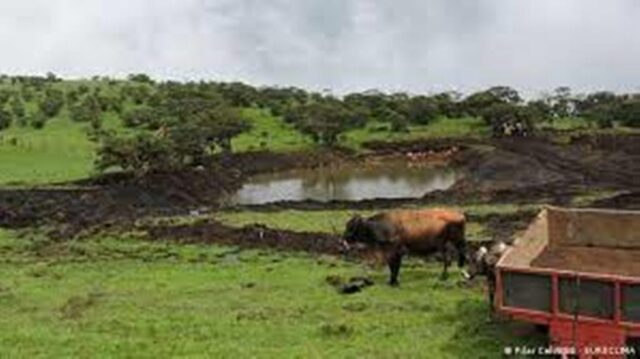Costa Rica is the host country for Desertification and Drought Day. This year’s motto is “Restoration. Land.Recovery. Healthy lands for a better reconstruction”. Our country presented its own experience in this effort.
For months, organizations and governments in Latin America and the Caribbean have been demanding that the recovery from the COVID-19 Pandemic be environmentally sustainable. “Healthy lands for better reconstruction” is precisely the motto of the Day of Desertification and Drought, which commemorates the United Nations Convention to Combat Desertification (UNCCD) every June 17th.
For the second time, a country in Latin America and the Caribbean is hosting this commemoration, taking over from Ecuador, which was in 2018. The government of Costa Rica organized an event in which it presented the various actions with which it has managed to become the first tropical country to halt and reverse its deforestation and forest degradation process.
“It seemed like the right moment to explain that the land is the base where the forest is, it is the ecosystem and it is the base where we develop productive activities, consumption and where we also enjoy tourist sites,” the Tico Minister of the Environment, Andrea Meza explained.
It is a global problem that could become the next Pandemic, as has been warned by the ‘Global Assessment on Disaster Risk Reduction: Special Report on Drought 2021’ published by the United Nations Office for the Reduction of Disaster Risk (UNDRR).
“While the direct risk of drought is different in different regions, in our interconnected global world we can no longer afford to think of issues as separated by hazard or country,” the organization’s spokeswoman, Jeanette Elsworth, told, adding that, “drought in one part of the world can affect supply chains, the energy supply, security and these can have impacts on other parts of the world.
Investing in activities that protect and restore natural ecosystems will accelerate the recovery of communities, countries and economies around the world after COVID-19, experts say.
Facing the risk
“We live in a region of the world where we are also seeing the effects of desertification,” Meza stressed, recalling that “the Dry Corridor is a common threat.”
This geographical area crosses from the state of Chiapas (Mexico) to Costa Rica, passing through El Salvador, Honduras and Nicaragua. For this reason, in the north of Costa Rica, in Guanacaste, as well as in the basins of the Barranca, Tárcoles, JesúsMaría and Reventazón rivers, specific restoration plans and actions are being implemented.
A clear example
La FincaLajitas, in Guanacaste, is one of these places. It is a livestock company that has gone from a traditional to sustainable production model. This farm is part of the pilot project of the National Low Carbon Livestock Strategy of the Ministry of Agriculture and Livestock.
“On the farm they apply rational grazing, electric fences powered by solar panels; improved pastures, water reservoirs for supply in pastures and genetic improvement,”Meza explained, among other techniques. “It has more than 35% of its area under forest protection, which allows conserving local flora and fauna and generating environmental services such as water and oxygen,” he stressed.

The Minister of Environment and Energy of Costa Rica pointed out that in Guanacaste there are about 300 farms implementing some of these measures. “In the country there are already more than a thousand farms that are part of the National Strategy for Low Carbon Livestock”, he stressed.
Investing today for a better future
For Walter Vergara, Senior Climate and Forest Specialist at the World Resources Institute (WRI), “Costa Rica represents a very successful example of combining a political agenda and private investment to prevent land degradation.” “In a few decades it reversed the trend of degradation and aims to increase its natural capital, and this capital is now the center of its decarbonization strategy,” he points out.
Investing in these kinds of measures could stop thousands of Central Americans from being forced to leave their homes because the land on which they subsist can no longer be cultivated.
“This problem is an example of the climate impact on migration,” said the WRI expert, recalling that the resources of the Northern Triangle Plan of the United States administration can be used for this. “The targeted use of these fiscal resources, for example to promote reforestation and restoration of degraded land, can make a big difference,” he said.
On the other hand, it is estimated that global land restoration could generate benefits of 1.4 trillion dollars annually. In any case, “prevention is always cheaper than response. In some cases, we see that $ 1 spent on prevention can save between $ 6 and $ 15 in response to disasters,”said Elsworth, who acknowledged that governments are reluctant to make these types of investments.
“UNDRR works to persuade governments to look beyond short-term political ends and work with multilateral institutions and mechanisms on plans and projects for investments aimed at preventing future disaster risks,” he explained.
Finally, “converting land use from a source of emissions to a carbon sink is central to achieving the decarbonization of Latin American economies,” said Vergara, coordinator of the 20×20 initiative that has managed to restore 22 million hectares of degraded land in the region. “The new goal is to reach 50 million hectares by 2030, including 30 million hectares in the commitments of the Paris Agreement,” he added.

